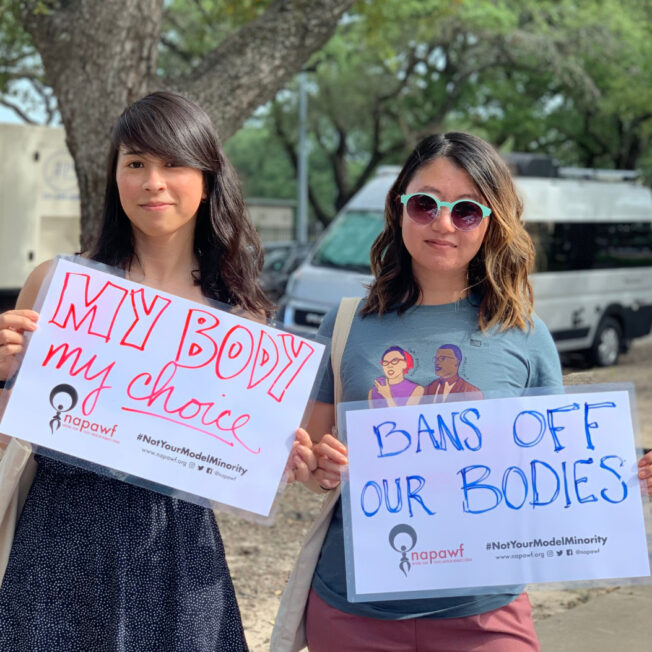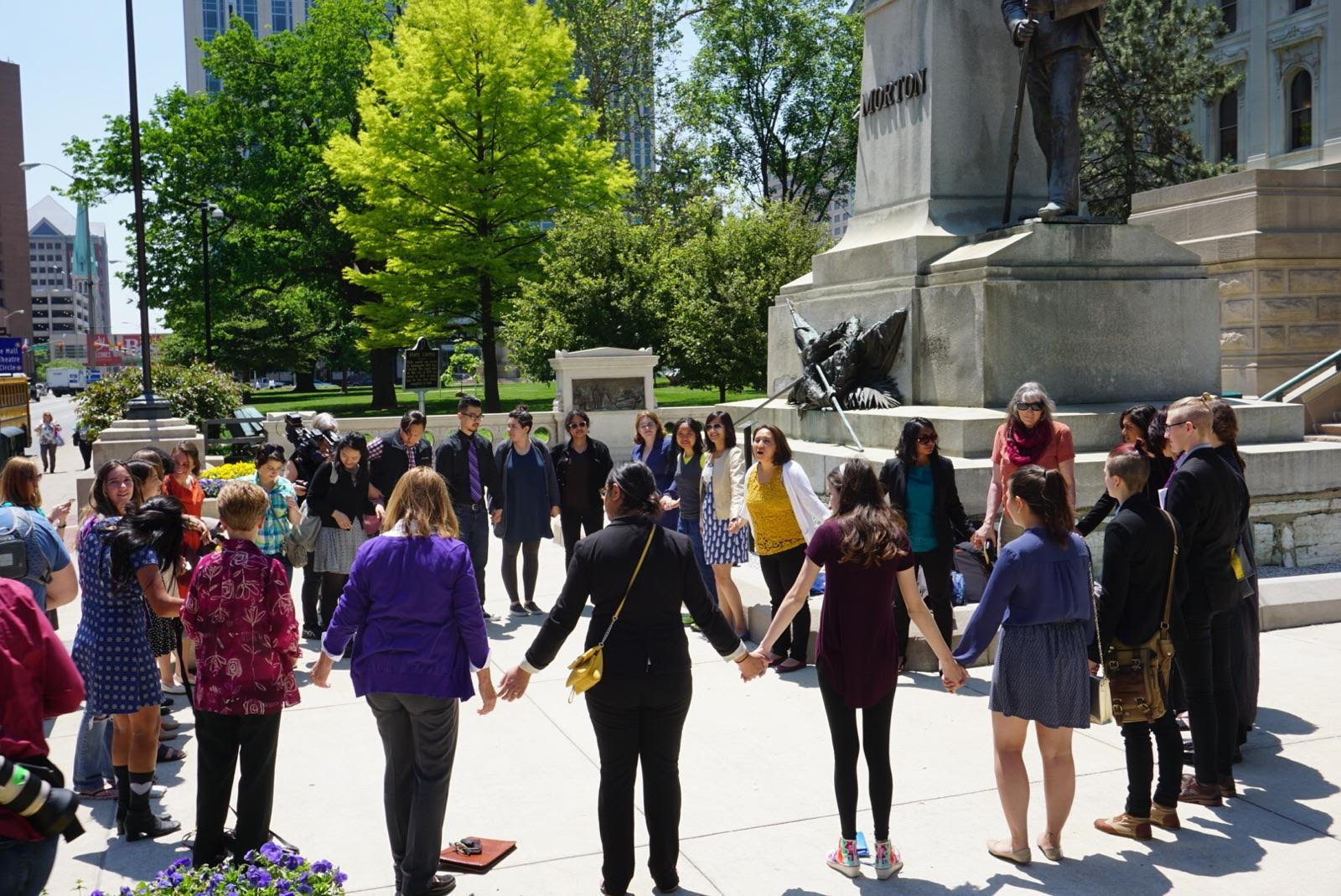Reproductive Health and Rights
We believe in the right of all people to make decisions about their bodies, sexuality, and reproductive health, no matter what lawmakers or courts say.

Even before Roe v. Wade and the constitutional right to abortion were overturned in 2022, reproductive care was denied to many.
Barriers to abortion continue to disproportionately impact women of color, low-income women, and immigrant women. As AAPI women and girls, we know the terrible impact these restrictions have on our lives.
At NAPAWF, we’re fighting to make sure every person can make decisions about their bodies, sexuality, and reproductive health. So we can choose if, when, and how to grow our families, access sexual and reproductive health resources that make sense for us. As we fight for our most basic bodily rights, we’re dedicated to building structural change through policymaking, awareness campaigns, and community engagement.
Medication Abortion Study
Study: Medication Abortion Among Asian Americans, Native Hawaiian, and Pacific Islanders
This first-of-its-kind study examines Asian American, Native Hawaiian, and Pacific Islander (AANHPI) experiences with medication abortion.
Overall, we found that the taboo nature of abortion led to limited knowledge about abortion methods and a strong desire for more open conversations and support.
The findings from this study underscore how important it is to have more conversations about our reproductive health without it being a source of shame or embarrassment. For the 1 in 3 AANHPI pregnancies that end in abortion, access to reliable and accurate information about different abortion methods is critical.
Sex-Selective Abortion BansSex-Selective Abortion Bans
Sex- and race-selective abortion bans seek to make it illegal for health providers to perform abortions based on the sex of the fetus. These bans are cloaked in language to promote gender equality but instead use racist stereotypes to put abortion care further out of reach for AAPI women. Learn more about bans.
Fighting the Criminalization of Pregnancy Outcomes

In 2016, we supported the release of Purvi Patel, an Indian American woman who was wrongly criminalized and the first woman to ever have to go to jail for terminating her own pregnancy. Read about the fight.
ResourcesResources
The NAPAWF Team publishes factsheets, reports, and other resources about the status of reproductive health & rights for AANHPI communities.
